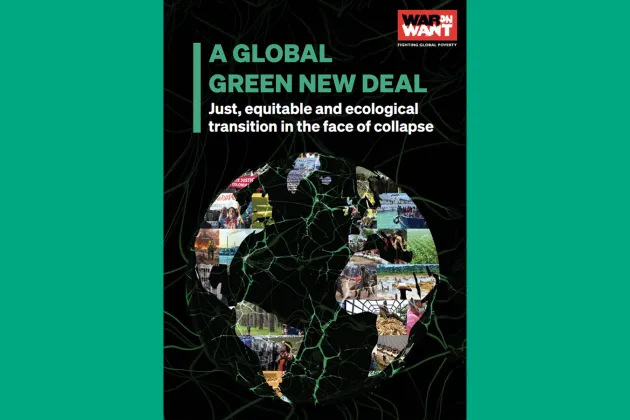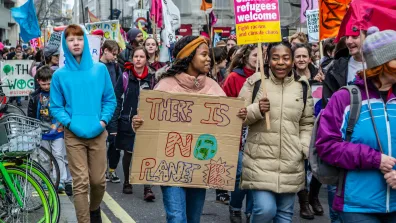Reclaiming power in a broken energy system
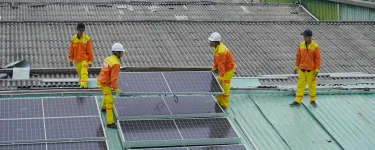
Energy has always been political. Today, fossil fuel corporations are raking in record profits, while families choose between heating their homes and feeding their families — and across the Global South, billions still lack reliable electricity.
Decades of deregulation (loosening state regulations around energy) and privatisation in the UK, and across the Global South, have turned energy from a basic human right into a source of extreme profit for corporations and the super-rich — while entrenching extreme inequalities in access to energy.
We need to reclaim energy for the people — from how energy is generated, distributed and used, to how the minerals powering the transition to ‘greener’ economies and societies are extracted — and put it under the democratic control of workers, communities and Indigenous peoples.1
Because a just transition away from fossil fuels means more than clean energy — it means building fairer, life-sustaining societies and economies that serve all people and our shared home, the planet.
However, right now, profit-driven corporations are leading an energy transition which is reinforcing the injustices we need to dismantle. This is anything but a just transition. Unless we change course, justice, care, community wellbeing and ecological balance will slip further out of reach.
A scramble for minerals
The UK is building its energy future on the backs of communities and ecosystems in the Global South, amid a global scramble for ‘transition minerals’ such as lithium, cobalt and nickel — minerals essential to electric vehicles, solar panels and other green technologies.
But government interest in transition minerals goes beyond green technologies. The UK government’s Critical Minerals Strategy — a plan supposedly to secure the raw materials for green technologies — belies a deeper agenda: securing UK technological dominance, military power, and economic control.2
Transition minerals, also known as ‘critical minerals’, are used in digital communications infrastructure, from data centres to smartphones and satellites, and advanced weapons systems — including drones, guided missiles and fighter jets. That’s why governments increasingly see critical minerals as essential to national security and technological supremacy — not only to compete in the global economy, but to assert military power and political influence. The global competition for transition or critical minerals is driving more aggressive mining and deepening inequalities around the world.3
In Chile, where the UK sources much of its lithium, the Atacama salt flats — home to fragile ecosystems and Indigenous communities — are being devastated by large-scale mining. As our partner, the Latin American Observatory for Environmental Conflicts (OLCA) has warned, Chile’s National Lithium Strategy reflects the pressures of a global economy that rewards the pursuit of profit, and punishes alternatives that protect nature, or uphold Indigenous rights.4
In 2023, the UK helped drive Chile’s strategy forward by signing a critical minerals deal aimed at securing “supply chain resilience” — ensuring a steady supply of lithium for British car manufacturing, tech industries, and weapons manufacturers. The deal ignored growing local resistance, the lack of Indigenous people’s consent, and calls to repair the ecological and cultural harm already caused by lithium mining in the Atacama Desert.
And Chile is far from alone. From the cobalt mines of the Congo to the Arctic mineral deposits, the Global North’s energy transition has become a new imperial project. Justified by climate goals, but driven by the control for resources, the Global North is treating Global South countries as reservoirs of cheap raw materials.
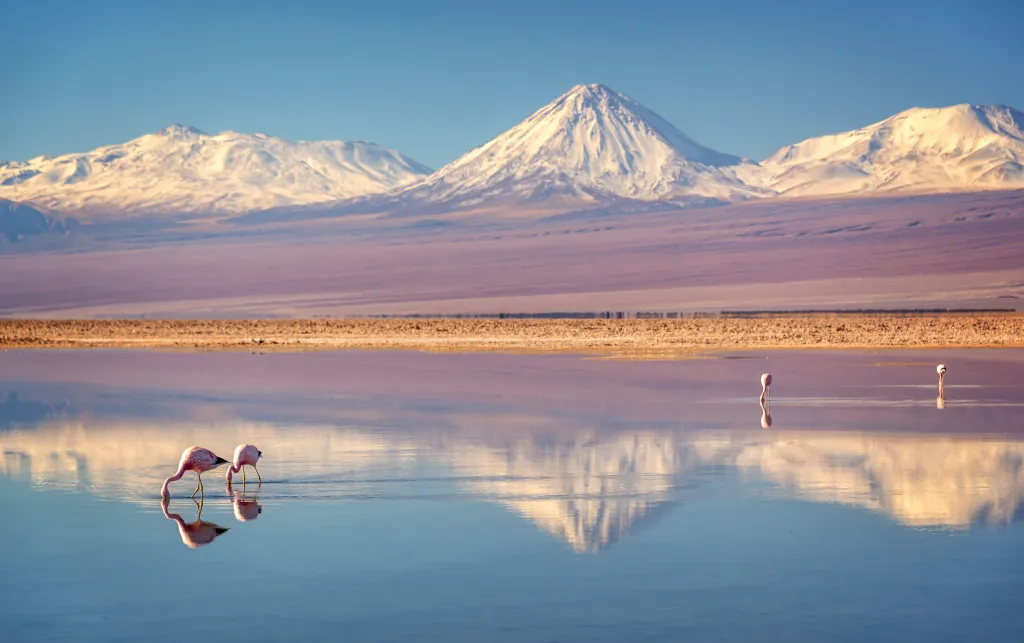
Geopolitics of green extraction
UK government policy is actively driving the global minerals race. The UK’s Critical Minerals Strategy — shaped by mining and military lobbyists — is based on the destructive mining of Global South lands.
Instead of standing in solidarity with the Global South communities whose lands and labour are making the transition away from fossil fuels possible, richer Global North countries are making deals with repressive regimes, mining zones are becoming militarised, and surveillance to crush resistance is increasing. This deepens global energy inequality: rich countries hoard the resources they need while billions across the Global South don’t have reliable electricity.5
The UK must do more. We can’t mine our way out of the crisis — and we don’t have to. A just transition is within reach.
Workers and communities left behind
This global race for transition minerals is not just playing out in extraction zones — it’s reshaping the future of work across the energy system. From coal miners and oil workers to grid technicians and solar panel installers, workers across the energy system are being sidelined in the transition to ‘greener’ energy.
Jobs in fossil fuel industries are disappearing without guarantees of decent alternatives. The green jobs that are emerging are too often precarious – poorly paid, insecure and non-unionised, and are concentrated in a handful of large multinational corporations.
This is part of a broader trend: from energy strategy to green industrial investment, decisions about a ‘green’ future are being made behind closed doors by governments and corporations, with little to no input from the people most affected.6
That’s why people’s movements such as our partner, Trade Unions for Energy Democracy (TUED), are fighting for a different transition — not driven by profit or competition, but instead by public ownership, democratic control, and the needs of people and planet. TUED’s approach — the Public Pathway to Reclaim Our Energy Systems — is rooted in solidarity with trade unions in the Global South and grounded in climate justice.

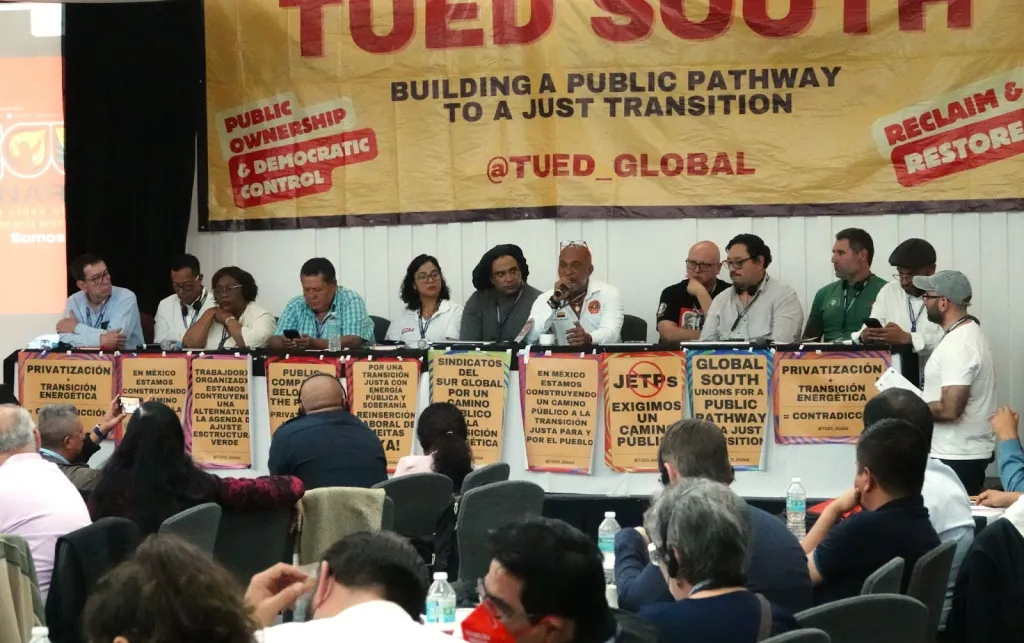
In Colombia, this vision is taking shape. TUED is working closely with the Colombian oil workers’ union, USO, to develop a Plan for Popular Energy Sovereignty — a blueprint to move away from fossil fuels towards a publicly-owned, worker-led energy system rooted in ecological and social justice. It shows that those who power the system every day can lead its transformation.7
UK energy and industrial workers face many of the same challenges — and deserve the same chance to lead. A just transition isn’t something handed down by governments — it must be organised from below.
Reclaiming the right to energy
A just transition means more than clean energy — it means building economic systems that serve life — with enough for all, without breaching the ecological thresholds (‘planetary boundaries’) beyond which the Earth’s climate and ecosystems begin to break down, threatening all life.8 It means a different kind of ‘development’ — measured by wellbeing, ecological harmony and public control, not gross domestic product (GDP).9
Energy supply chains expose a simple truth: power lies not only in use, but in control. A just transition must shift that power — the Global South must lead in shaping how resources and technologies are shared, through co-operation, not competition.10
The UK must back a truly global just transition — not through carbon offset schemes — where rich countries or corporations pay to avoid cutting their own emissions, but through real financial support: cancelling Global South debt, providing public funding with no strings attached, technology sharing, and reparations for Global South countries — for centuries of Global North extraction and exploitation.11
The UK can double down on mining deals and empty climate promises, which mean little in reality — or it can lead a global move towards the public ownership of energy, with access for all.
The question now is: will the UK stand with the communities building a fairer future, or continue to stand in the way?
Share this page
- 1
- 2
https://tjm.org.uk/civil-society-calls-for-uk-critical-minerals-policy-to-p…
- 3
- 4
- 5
https://londonminingnetwork.org/2020/11/martial-mining-report-out-now/
- 6
https://www.cut.org.br/acao/download/3719ee96b667057b112a1fd5d12d2542
- 7
- 8
https://waronwant.org/news-analysis/healing-fracture-global-green-new-deal-…
- 9
https://waronwant.org/news-analysis/global-green-new-deal-10-ways-secure-fa…
- 10
https://www.tandfonline.com/doi/epdf/10.1080/13563467.2025.2506655
- 11
https://waronwant.org/news-analysis/stop-fossil-fuel-spending-pay-uks-clima…
